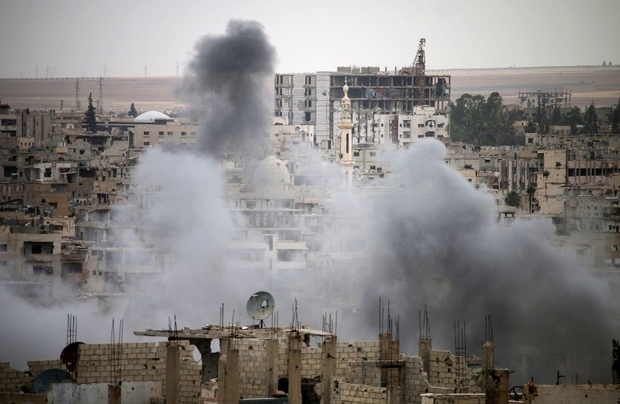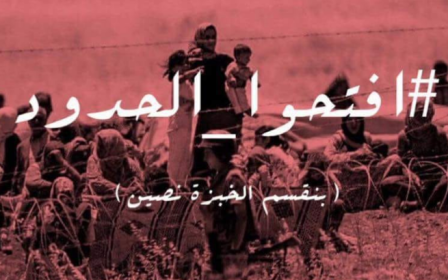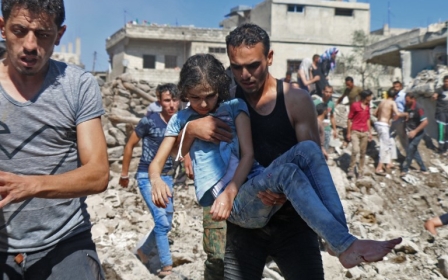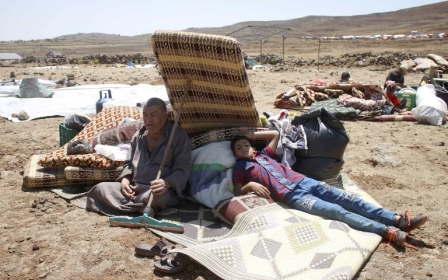Syria government advances in south as air strikes kill 15

At least eight battered rebel-held towns in southern Syria returned to government control under Russian-brokered deals on Saturday as air strikes killed at least 15 civilians, a monitor said.
Since 19 June, backed by its ally Russia, the Damascus government has carried out a deadly bombing campaign in southern Syria as it pushes to retake the strategic area bordering Jordan and the Israeli-occupied Golan Heights.
As of Saturday, government forces controlled more than half of Daraa, an increase from 30 percent at the start of the operation, the Syrian Observatory for Human Rights monitor said.
The southwest was an early hotbed of the uprising against President Bashar al-Assad and defeat there would leave rebels with just one remaining stronghold - the area around Idlib province bordering Turkey in the northwest.
More than 160,000 people have been displaced by the Daraa offensive, according to the United Nations, with many of them gathering on the border with Jordan and near the Golan. At least 116 people have been killed by the fighting.
Eight towns in the province were returned to government control under Russia-brokered deals "after talks in each town between Russian generals as well as local notables and remaining rebels," Observatory head Rami Abdel Rahman said.
The so-called "reconciliation" deals are the latest in a string of such agreements across the country that have seen the government retake opposition-held areas, often after devastating air and ground offensives.
These deals imposed by the government often see opposition fighters hand over their heavy weapons and allow those who want to leave to board buses headed to rebel-held areas in the north of Syria.
Government forces continued to bombard other parts of Daraa province on Saturday, with air strikes killing at least 15 civilians, according to the Observatory.
Unidentified air strikes killed 10 civilians, including five children, in the rebel-held town of al-Sahwa, the Britain-based monitor said.
Government air raids also took the lives of five non-combatants in the town of Ghasam.
Posters of Assad
State news agency SANA confirmed the deals for the five towns of Dael, Western Ghariya, Eastern Ghariya, Talul Khlayf and Tal al-Sheikh Hussein.
State television broadcast live images from Dael, showing residents holding up posters of Assad and chanting slogans in support of the army.
The Observatory said the towns to return to government control also included Ibtaa, Um Walad and Eastern Karak.
With the deals in Daraa, the government has further chipped away at a U-shaped patch of territory controlled by the rebels in southern Syria.
Retaking the whole of Daraa province would be a symbolic victory, as it is seen as the cradle of the anti-Assad uprising seven years ago that spiralled into civil war.
It would also allow the government to re-open the Naseeb border crossing with neighbouring Jordan and potentially resume lucrative trade across the frontier.
But just under half of Daraa province - including part of the provincial capital of the same name - still remains in the hands of rebels.
"The regime wants us to hand over everything - Daraa city, the Naseeb crossing, ourselves and the heavy weapons. It's inadmissible," a negotiator in the rebel-held part of Daraa city told AFP.
On Saturday afternoon, a video circulated on social media showing a rebel negotiator saying that talks with the Russians had failed.
"The last sessions were today," said Bashar al-Zobi, accusing the government and its Russian ally of wanting nothing but "surrender and injustice".
The rebels said they were unwilling to accept the terms being offered by Russia, which would have meant the Syrian government taking full control of rebel-held areas in Daraa province.
"The meeting ended in failure. The Russians were not ready to listen to our demands. They offered one option, to accept their humiliating demand to surrender, which was rejected," said Ibrahim Jabawi, a spokesman for the Free Syrian Army.
The army's offensive follows the capitulation of rebel enclaves near Homs and Damascus, including Eastern Ghouta, which was recaptured after a scorched-earth assault that killed over a thousand civilians and laid waste to several towns.
Warfare in the southwest could risk a further escalation because of its proximity to Israel. The Israelis have already targeted Iran-backed militias fighting on Assad's side, which they have vowed to keep far from their country's borders.
The government's offensive so far has focused on Daraa province, which borders Jordan, but not Quneitra province abutting the Israeli-occupied Golan Heights.
The entire southwest is part of a "de-escalation zone" agreed last year by Russia, the United States and Jordan. Despite Washington's threats that it would respond to breaches of that arrangement, it has shown no sign of doing so, and the opposition's top negotiator on Thursday accused the US of having struck a "malicious deal" to stay silent.
Jordan, which has taken in more than 650,000 displaced Syrians since the war began, and Israel have said they will not open their borders to refugees.
Middle East Eye propose une couverture et une analyse indépendantes et incomparables du Moyen-Orient, de l’Afrique du Nord et d’autres régions du monde. Pour en savoir plus sur la reprise de ce contenu et les frais qui s’appliquent, veuillez remplir ce formulaire [en anglais]. Pour en savoir plus sur MEE, cliquez ici [en anglais].




